Keynote Talk: The Future of Material Design
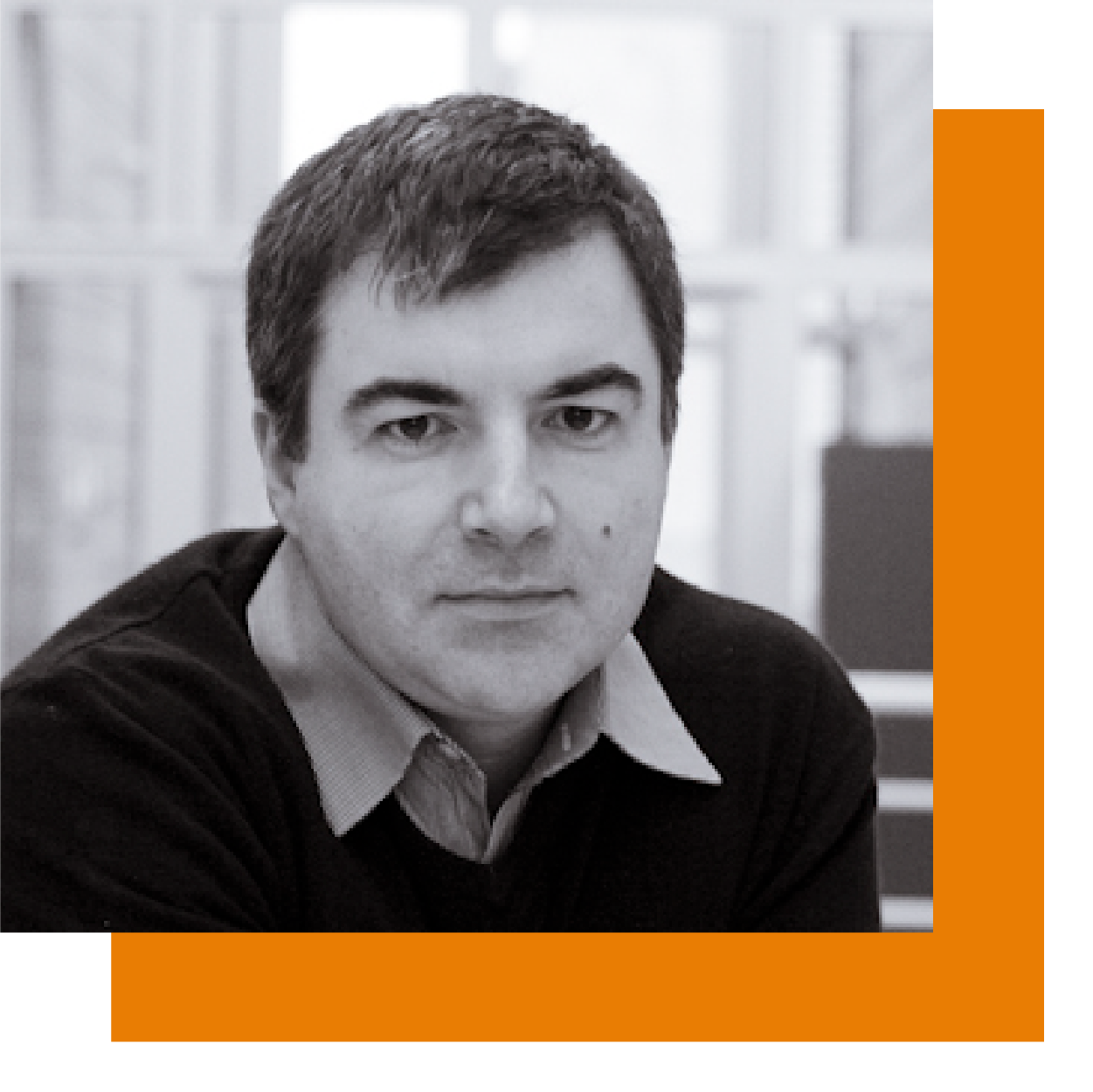
Nobel Laureate, Physics (2010)
Distinguished Professor, Department of Materials Science and Engineering, NUS
Tan Chin Tuan Centennial Professor
Professor Sir Konstantin ‘Kostya’ Novoselov FRS is an expert in condensed matter physics, mesoscopic physics and nanotechnology, best known for isolating graphene in 2004. He was awarded the Nobel Prize for Physics in 2010 for his pioneering experiments with this material. Every year since 2014, Kostya Novoselov is included in the list of the most highly cited researchers in the world.
He graduated from the Moscow Institute of Physics and Technology, and undertook his PhD studies at the University of Nijmegen in the Netherlands before moving to The University of Manchester in 2001 and then to the National University of Singapore in 2019. Professor Novoselov has published more than 350 peer-reviewed research papers. He was awarded with numerous prizes, including Nicholas Kurti Prize (2007), International Union of Pure and Applied Science Prize (2008), MIT Technology Review young innovator (2008), Europhysics Prize (2008), Bragg Lecture Prize from the Union of Crystallography (2011), the Kohn Award Lecture (2012), Leverhulme Medal from the Royal Society (2013), Onsager medal (2014), Carbon medal (2016), Dalton medal (2016), Otto Warburg Prize (2019) among many others. He was knighted in the 2012 New Year Honours.
Kostya also received a formal education in Chinese art, working in the studio of Zheng Shenglong (Xiamen University, China). His background in Physics links nicely with the traditional Chinese art, both following reductionism approach. Also interested in modern art, he collaborated with a number of artists, including Cornelia Parker and Mary Griffiths. In his artwork, Kostya uses novel approaches and materials. He expanded the range of topics far beyond the traditional Chinese ones, producing a novel, refreshing view on many subjects. Also, he introduced the use of graphene ink (the work he was awarded the Nobel Prize in Physics in 2010, jointly with Prof. Sir Andre Geim FRS) in his painting. Together with the inks based on other two-dimensional materials, such media strongly expands the expressiveness and functionality of his artwork. Following Hofstadter’s idea, Kostya is fascinated with the concept of strange loops, which can be traced throughout many of his works.
There are numerous opposing views posted in the web which make the decision to embark on a PhD confusing and daunting. The PhD program typically consumes 4-5 years of your life. During this period of time, the candidate is required to complete work that is deemed worthy of a doctorate degree. Often, candidates showed high enthusiasm and excitement at the start, but this enthusiasm wane over the few years. Sad and terrifying stories of disastrous PhD experiences abound in the hall ways of many institutions. The question then is, “should I do a PhD?” This sharing is a reality check of what it is like to go through the PhD program and where it can land. It can be a worthwhile and rewarding journey of self-development and learning.
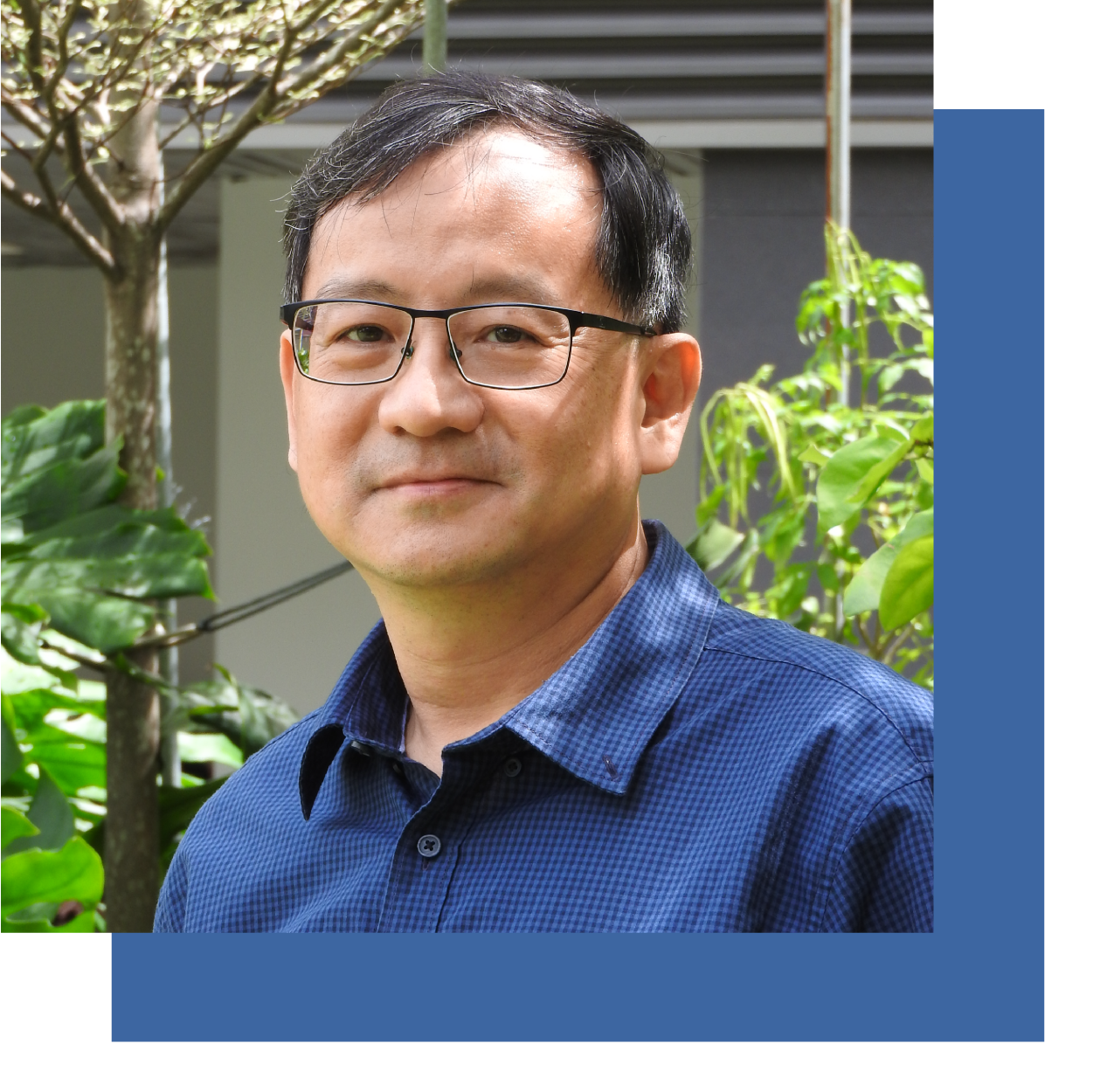
Associate Professor Too Heng Phon
Associate Professor, Department of Biochemistry, NUS
Associate Professor, Department of Chemical and Biomolecular Engineering, NUS
Faculty Fellow, Singapore-MIT Alliance
Dr Too Heng Phon received his undergraduate training in Biochemistry, Imperial College of Science & Technology, UK. He then continued with his PhD training in a joint research project in Imperial College, Institute of Ophthalmology and West Minister Hospital, London. Thereafter, he received further training in the Medical Research Council, Cambridge (UK), where he was a Procter & Gamble Fellow.
He then moved to the Department of Anesthesiology and Department of Biological Chemistry & Molecular Pharmacology, Harvard Medical School where he was a recipient of the Merck Sharpe Dohme Academic Development Fellowship. He is a faculty member of the Department of Biochemistry, National University Singapore, and was an adjunct scientist in the Bioprocess Technological Institute, Biotransformation Innovation Platform, A*STAR, and was a Fellow/Chair of the Singapore Massachusetts Institute of Technology Alliance (Molecular Engineering of Biological & Chemical Systems program; Chemical & Pharmaceutical Engineering program). His laboratory was funded by Roche Diagnostics (USA/ Asia Pacific) and National Institute of Health (USA) to develop qPCR assays for infectious diseases.
Recently, his team has developed a novel method to insert genes into cells without the use of viruses. There are intellectual property protections on his specific diagnostic and biotechnology platforms with various agencies and with Massachusetts Institute of Technology, USA. Together with his graduate students, they co-founded a spinoff molecular diagnostic company which is now a small medium enterprise in Singapore with global presence. He has a number of collaborations with clinical groups locally and globally on discovery and development of microRNA biomarkers, metabolic engineering and cellular therapeutics.
Forum Style Q&A
Panellists
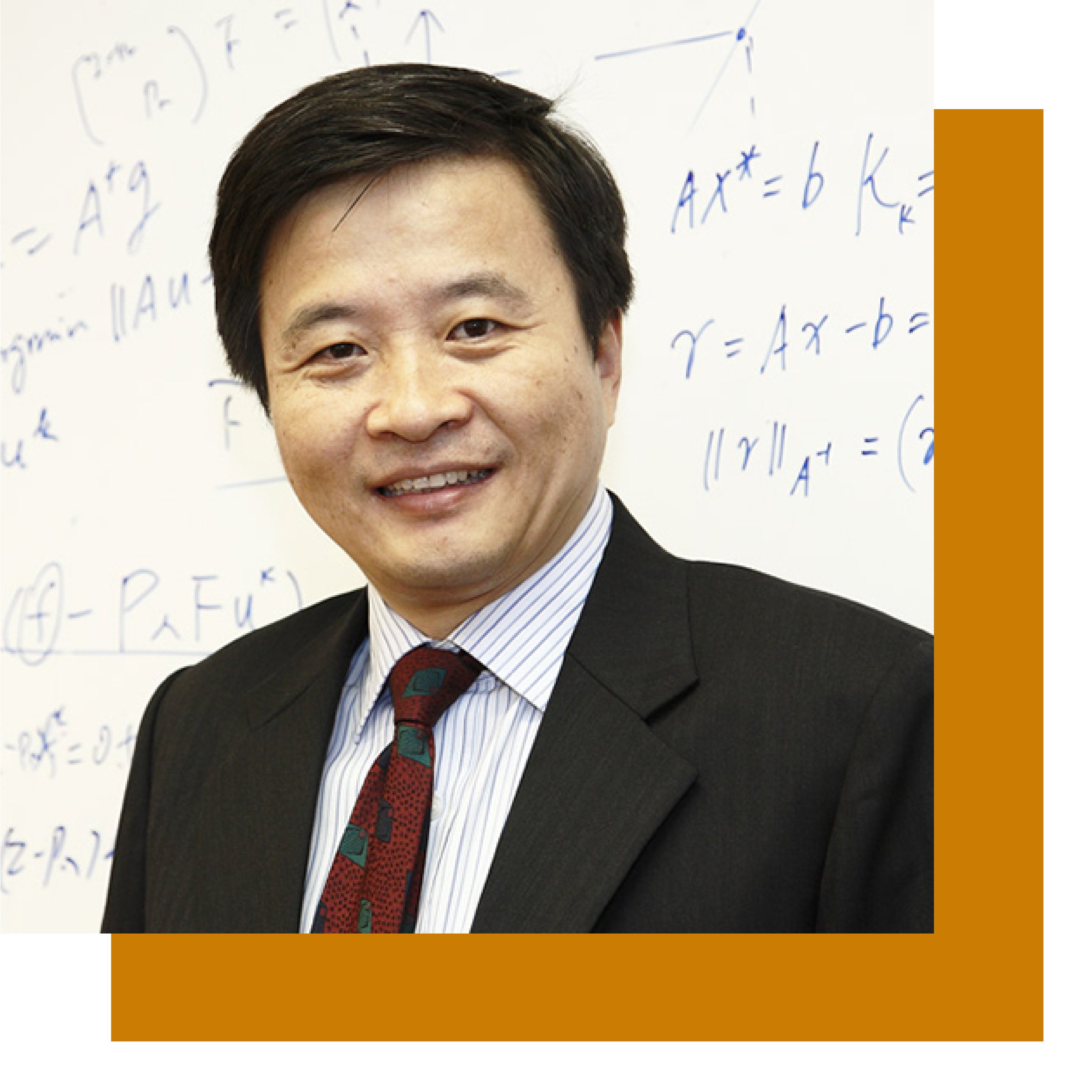
Vice Provost (Graduate Education)

Associate Professor Too Heng Phon
Associate Professor, Department of Biochemistry, NUS
Associate Professor, Department of Chemical and Biomolecular Engineering, NUS
Faculty Fellow, Singapore-MIT Alliance

Vice-Dean (Graduate Studies), Yong Loo Lin School of Medicine, NUS
Associate Professor and Head, Department of Microbiology and Immunology, NUS
Head, Innovation in Graduate Studies, NUHS
Scientific Director, BioLynx Technologies Pte Ltd
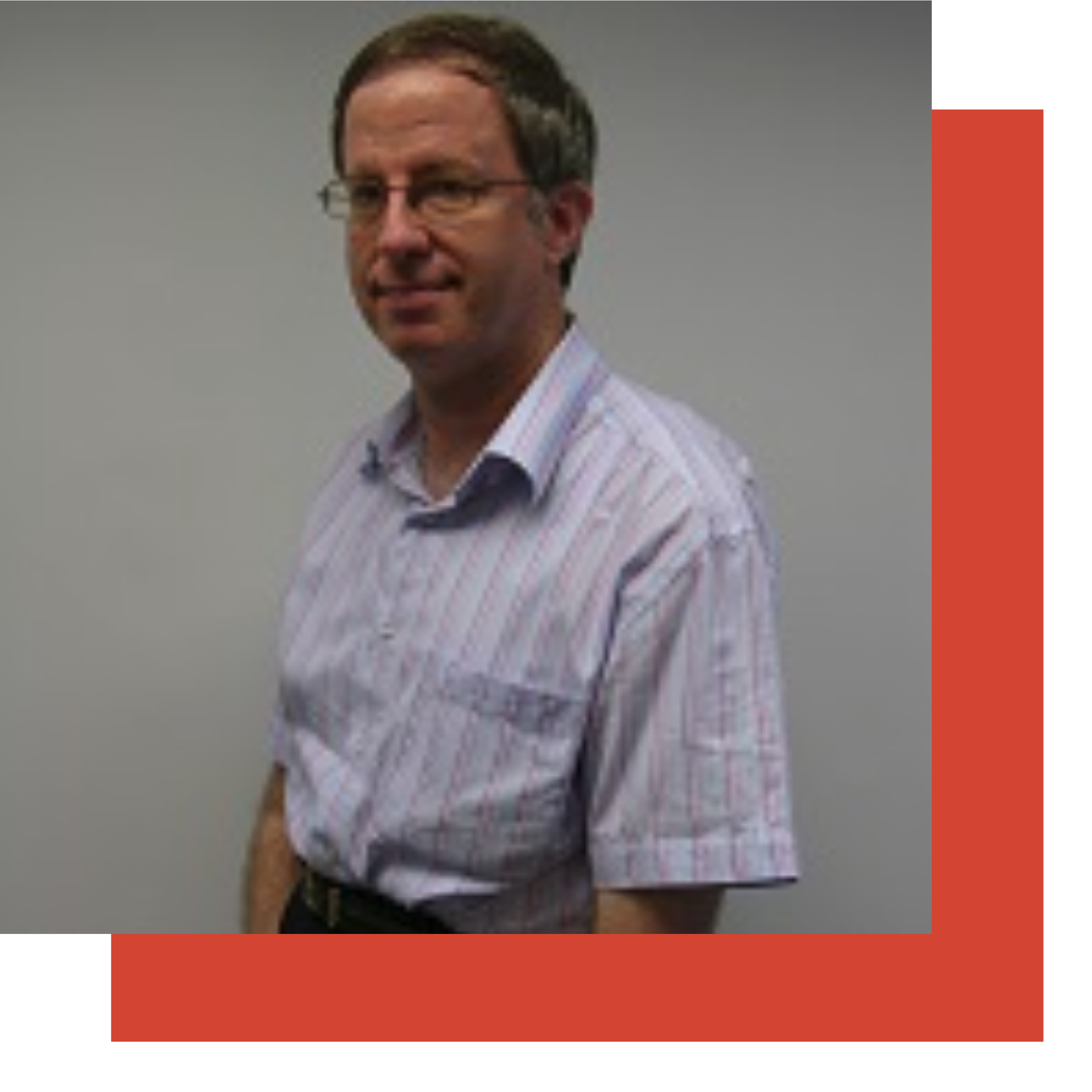
Associate Professor Bruce Lockhart
Vice Dean, Graduate Studies Division, Faculty of Arts and Social Sciences, NUS
Associate Professor, Department of History, NUS
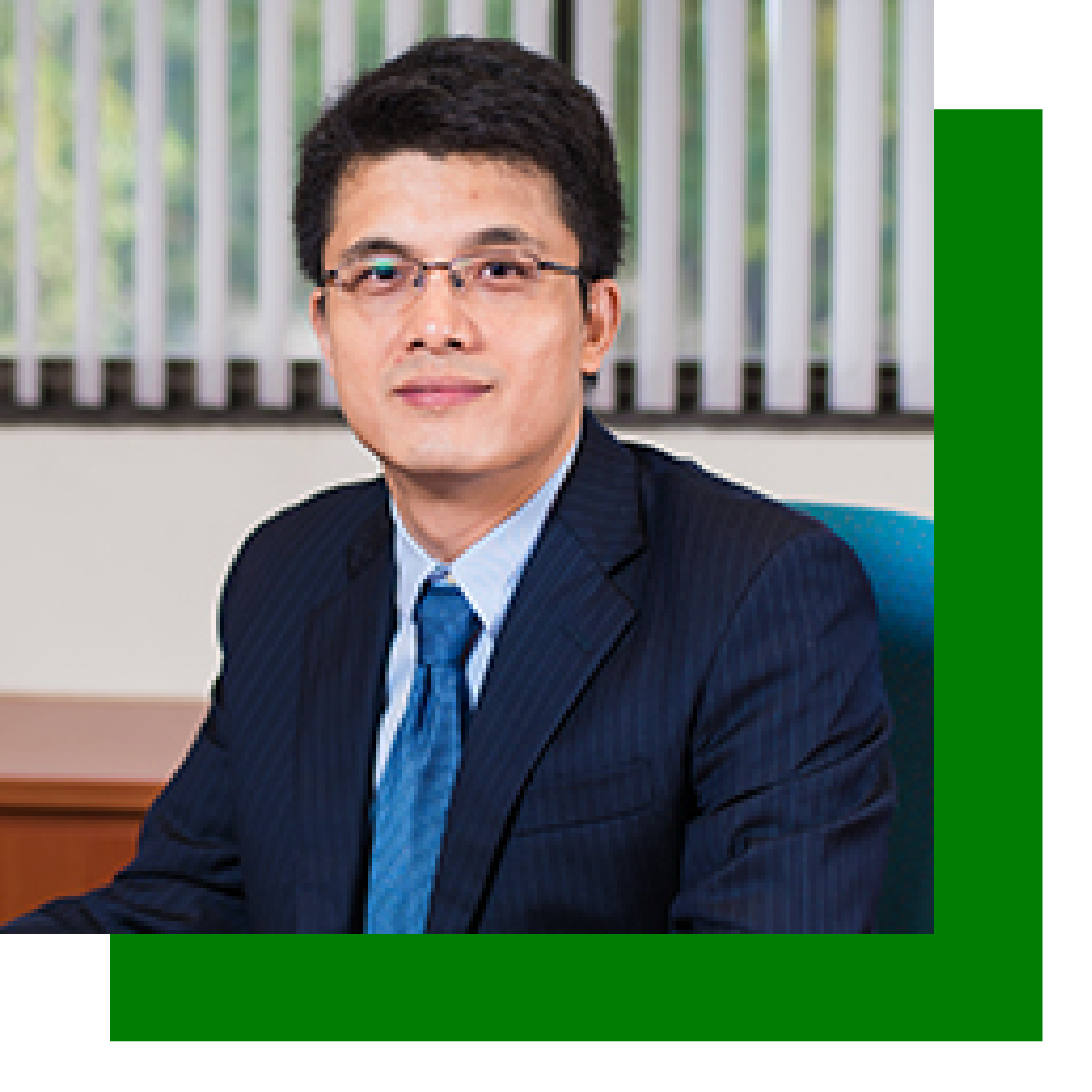
Assistant Dean, Faculty of Science, NUS
Associate Professor, Department of Chemistry, NUS
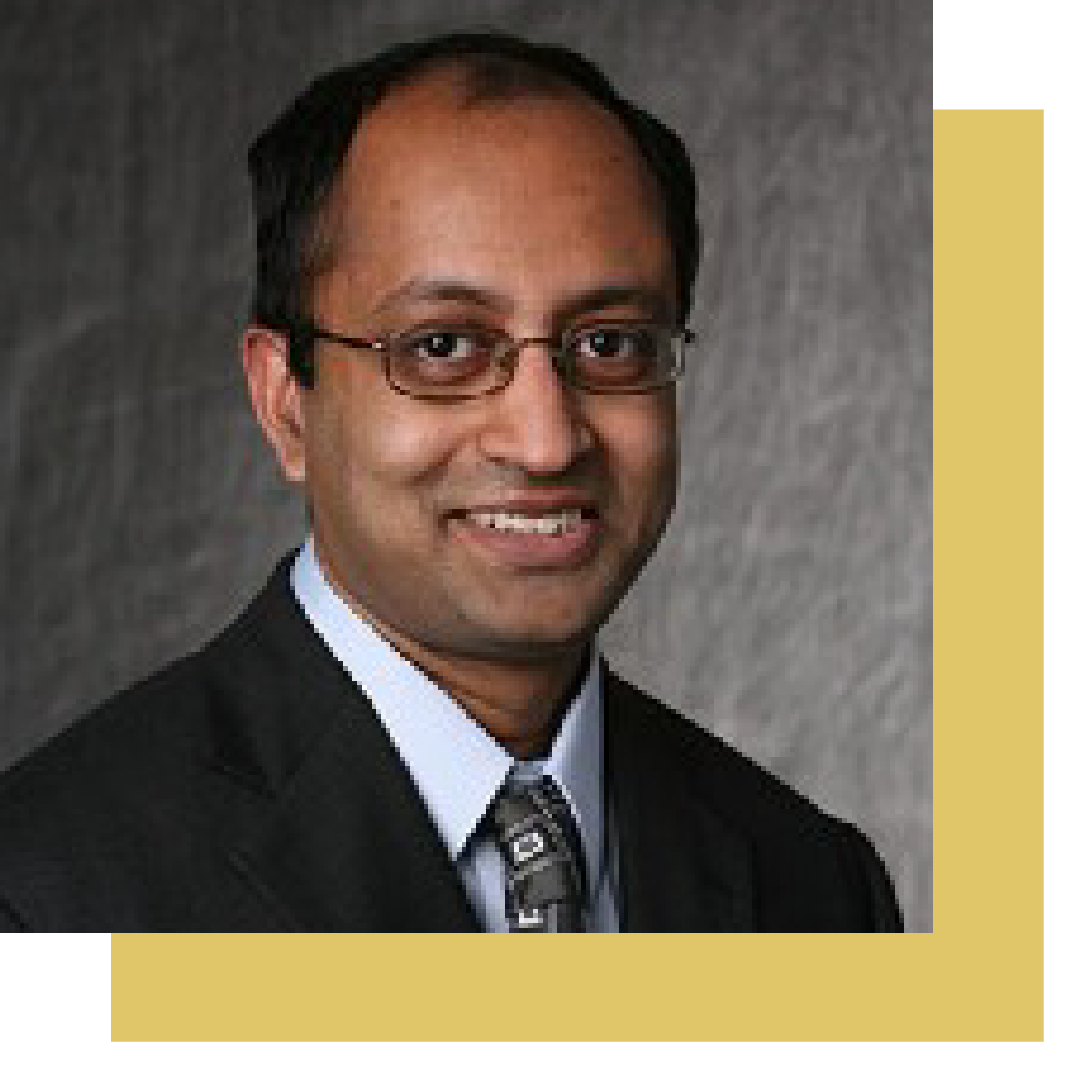
Associate Professor Biplab Sikdar
Vice-Dean (Graduate Programmes) & Area Director (Communications & Networks), Faculty of Engineering, NUS
Associate Professor, Department of Electrical and Computer Engineering, NUS
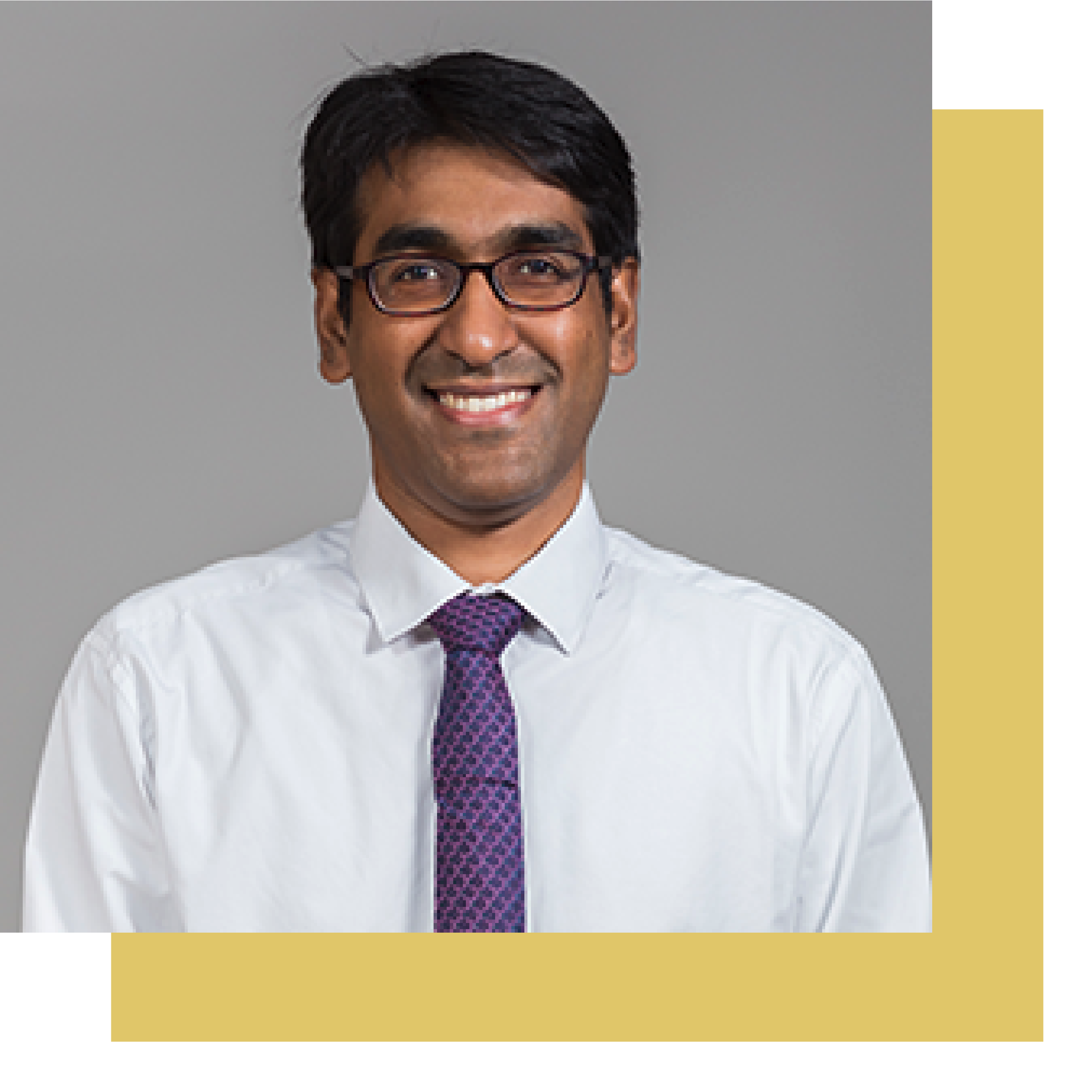
Assistant Dean, Graduate Studies, School of Computing, NUS
Associate Professor, Department of Computer Science, NUS
Dean’s Chair Associate Professor
Co-Director, CRYSTAL Centre
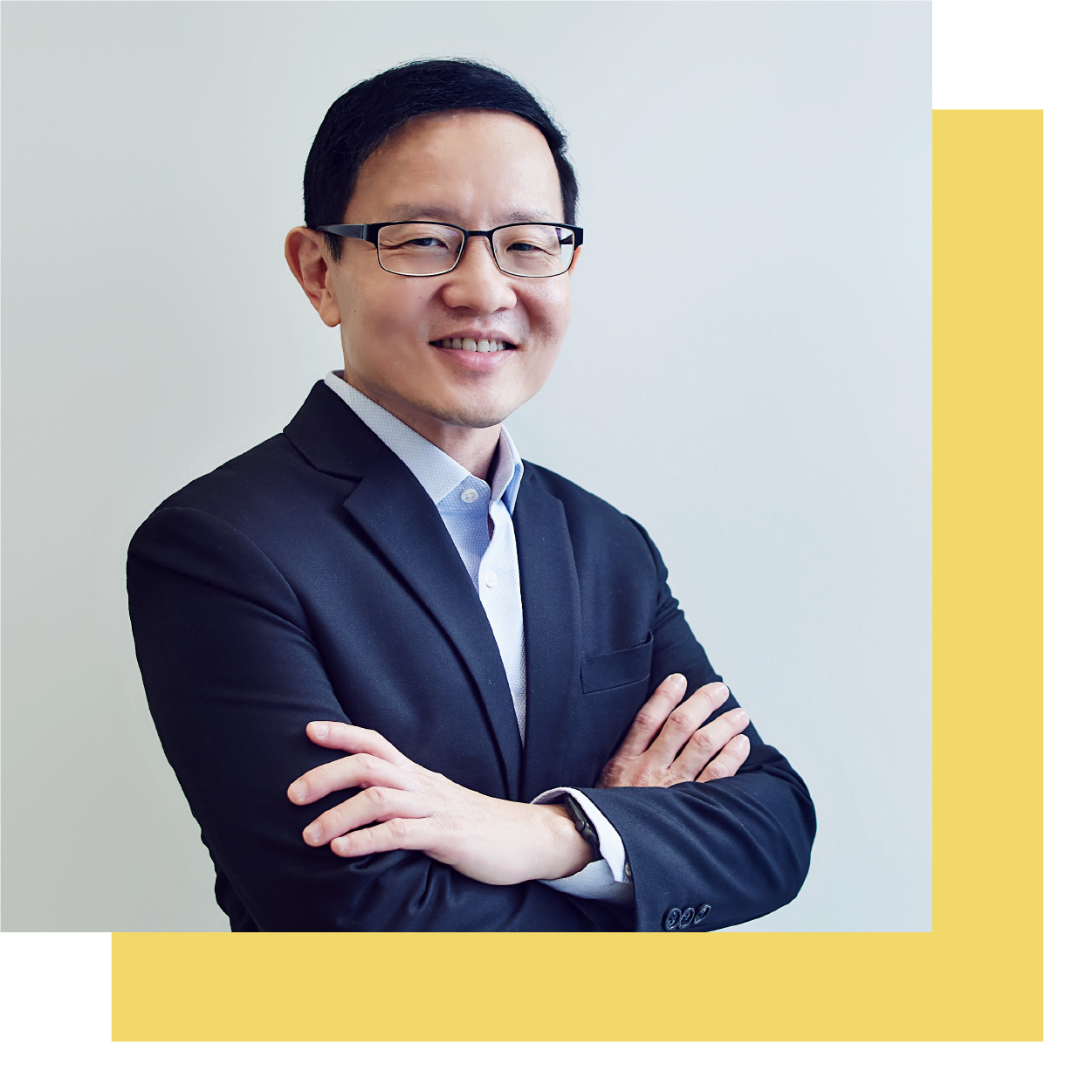
Director, Institute for Health Innovation & Technology
NUS Society Professor, Department of Biomedical Engineering, NUS
Founding Director, Singapore Health Technologies Consortium
Professor Lim Chwee Teck is a scientist, innovator and serial entrepreneur. He is the inaugural NUS Society Professor and Director of the Institute for Health Innovation and Technology at the National University of Singapore. His research interests include mechanobiology of human disease and microfluidic and wearable technologies for biomedical applications. He has co-authored over 400 peer-reviewed publications in journals including Nature, Science, Nature Materials, Nature Physics, Nature Communications, PNAS, etc and has over 50 filed/granted patents.
He is an elected Fellow of AIMBE, IAMBE, Academy of Engineering, Singapore and the Singapore National Academy of Science. Prof Lim has co-founded six startups which are commercializing technologies developed in his lab. He and his team have garnered over 100 research awards and honours including Highly Cited Researcher 2019, IP Champion for the WIPO-IPOS IP Awards in 2019, ASEAN Outstanding Engineering Achievement Award and Asian Scientists 100 in 2016, Wall Street Journal Asian Innovation Award (Gold) in 2012, President’s Technology Award in 2011 and the IES Prestigious Engineering Achievement Award in 2010 and 2016 among others.
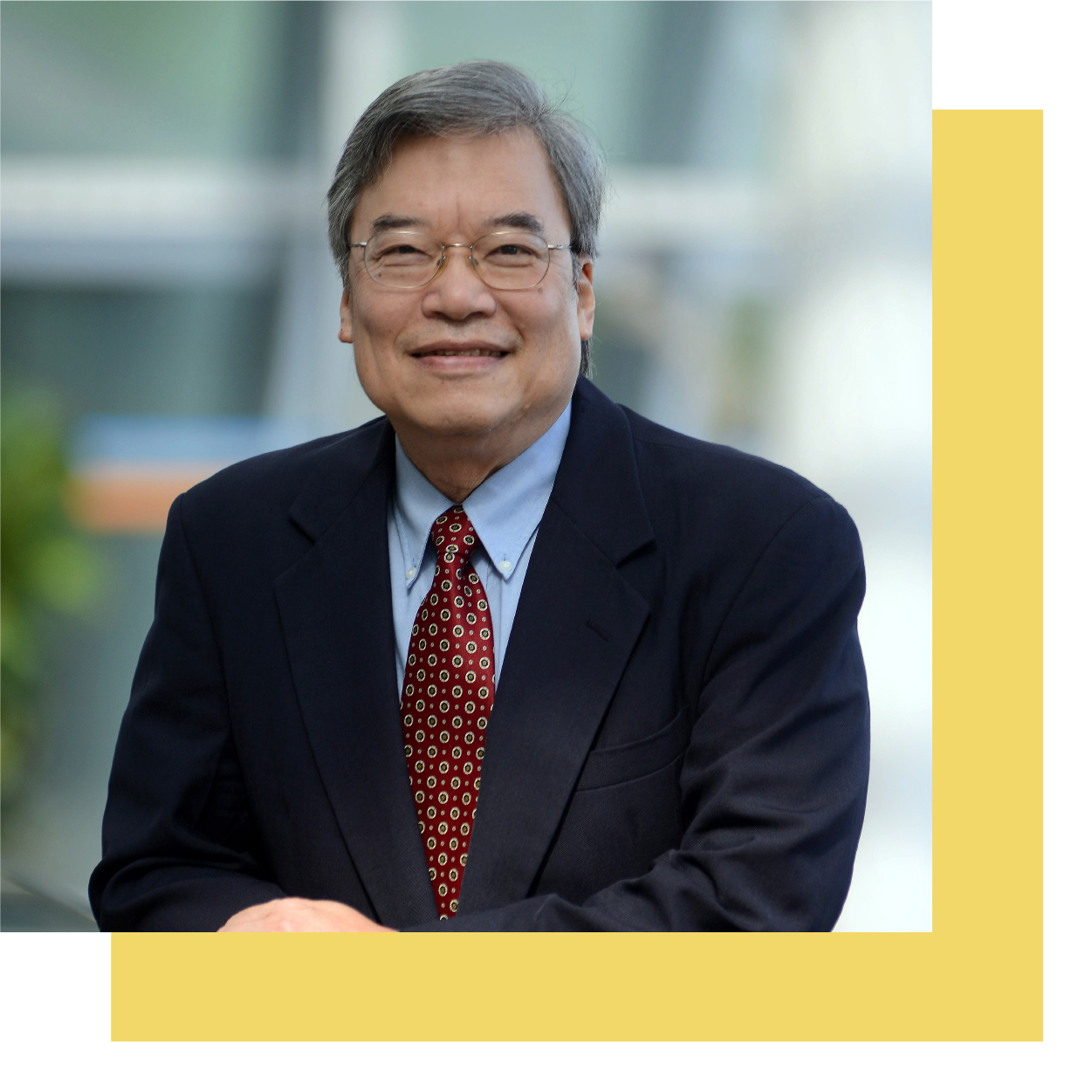
Distinguished Professor, Department of Civil and Environmental Engineering, NUS
Professor Philip L.-F. Liu is the Distinguished Professor in the Department of Civil and Environmental Engineering at NUS. Liu is also an Honorary Professor in Tsinghua University, China, the Li Kwoh-Ting Chair Professor in National Central University, Taiwan, and the Class of 1912 Professor in Engineering, Emeritus, in Cornell University, USA.
After graduating with a B.S. degree in Civil Engineering from National Taiwan University in 1968, Prof. Liu received a S.M. degree in Civil Engineering in 1971 and a ScD degree in 1974 from Massachusetts Institute of Technology. He joined Cornell faculty as an Assistant Professor in the School of CEE in 1974 and was promoted to Full Professor in 1983. Prof. Liu served as the Associate Director of the School in 1985-1986 and as the Associate Dean for Undergraduate Studies of Engineering College in 1986-1987. He was the Director of the School of CEE from July 1, 2009 to June 30, 2015. From August 2015 to July 2019, Prof. Liu served as the Vice President for Research and Technology at the National University of Singapore.
Prof. Liu is a member of the National Academy of Engineering (USA), an Academician of Academia Sinica (Taiwan), a Fellow of the American Geophysical Union, and a Distinguished Member of the American Society of Civil Engineers. He also received the ASCE Walter L. Huber Civil Engineering Research Prize (1978), the J. S. Guggenheim Fellowship (1980), the ASCE John G. Maffatt & Frank N. Nichol Harbor and Coastal Engineering Award (1997), the International Coastal Engineering Award ASCE (2004), the Alexander von Humboldt Research Award (2009), and the International Award for Enhancement of Tsunami/Coastal Disaster Resilience (2017).
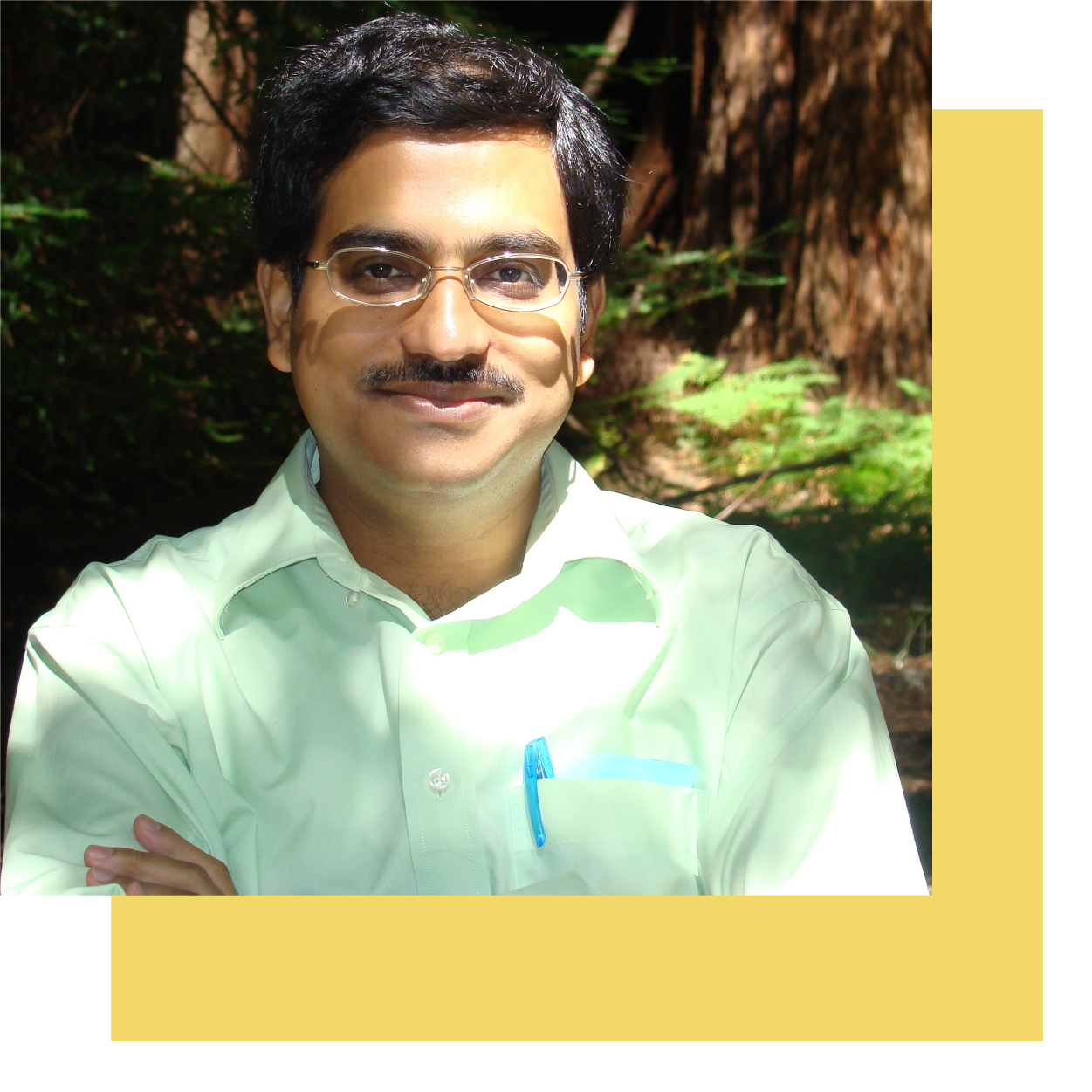
Director, National Satellite of Excellence in Trustworthy Software Systems, Singapore
Provost’s Chair Professor, Department of Computer Science, NUS
Professor Abhik Roychoudhury is a Provost’s Chair Professor of Computer Science at the National University of Singapore.
He is the Director of the National Satellite of Excellence in Trustworthy Software Systems at Singapore. He is also the Lead Principal Investigator of the Singapore Cyber-security Consortium, which is a consortium of over thirty companies in the cyber-security space engaging with academia for research and collaboration. His teaching and research interests are in software testing and analysis, software security and trust-worthy software systems.
His research on automatically repairing programs at a large scale has contributed to the vision of self-healing software systems. Since joining NUS in 2001, he has built up a research team in software systems, where his former doctoral students have been placed
at universities all over the world as academics, including Peking University, University of Melbourne, and University College London.
His former students have also received various awards for their doctoral research including an ACM SIGSOFT Outstanding Doctoral Dissertation Award. Abhik received his own Ph.D. in Computer Science from the State University of New York at Stony Brook in 2000.
Singapore has adopted the Smart Nation initiative in order to trace a path of development that embraces technology and AI. With the increasing digitization of society, large amount of data in a variety of shapes have become available for research, driving both industry and academia’s demand for innovative thinking and cross-disciplinary skills. NUS is playing a pivotal role conducting invaluable interdisciplinary research in this field. Guilherme will share his experience as a PhD student in Data Science and his interdisciplinary approach. He will describe the challenges and opportunities he has faced as an economics graduate with professional experience in socio-economic research who is currently harnessing machine learning to better inform policy makers.

Nationality: Brazil
Faculty & Year of Study: Institute of Data Science, Year 2
Guilherme Augusto Zagatti’s work rests on public policy research using machine learning. Currently, he is investigating how the structure of empirical temporal networks could affect disease transmission and optimal non-medical mitigating policies. He is a PhD student of Data Science at the Institute of Data Science (IDS) and the Graduate School for Integrative Sciences and Engineering (NGS) in the National University of Singapore (NUS). Previously, he worked as a data scientist at Flowminder where he contributed to the development of analytical toolkits and socio-economic research using call detail records and remote sensing data for poverty mapping and mobility analysis. He spent two years as an Overseas Development Institute (ODI) Fellow in the Ministry of Economic Planning and Development in Eswatini. Guilherme holds a BSc in Economics and MSc in Econometrics and Mathematical Economics from the London School of Economics.
Alumni Sharing: PhD – Beyond Professional
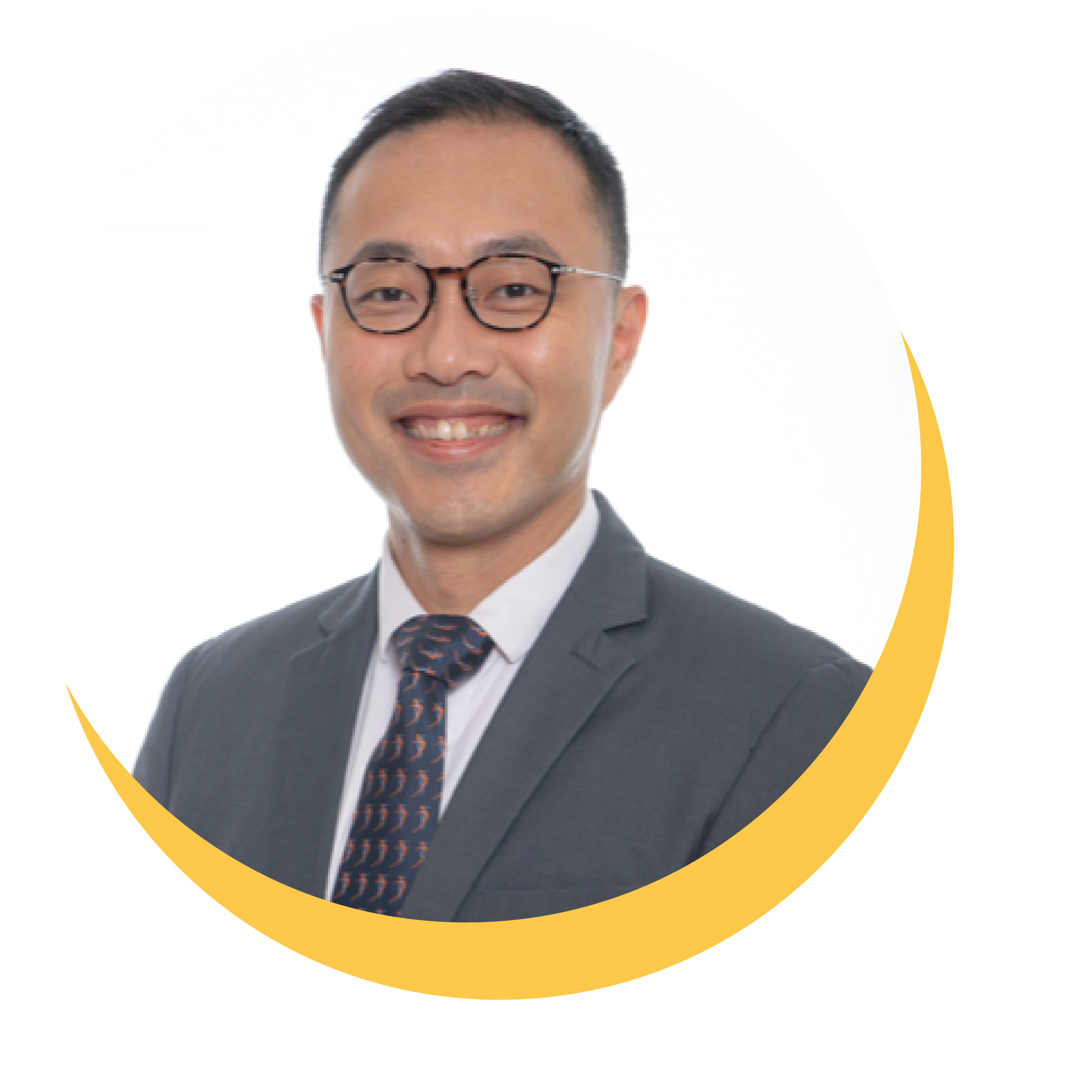
Nationality: Singapore
Current Job: Assistant Dean (Education), National University of Singapore, Singapore
Graduation: NUS Graduate School of Integrative Sciences and Engineering (NGS), Year 2009
At 3, Zhi Xiong aspired to be a fighter pilot (myopia put paid to that dream). At 9, he wanted to be a scientist. At 15, he was on track to read Philosophy, Politics and Economics. At 17, he hoped to be a theatre actor. At 25, PhD happened. From being a cancer biologist to a healthcare professions educator (hopefully, future DJ/pastor/NGO worker), from reading PhD to MHPE, from living in Singapore to Sweden, there is only one thing that remained constant for, what is now, nearly 50% of his lifetime – NUS. Zhi Xiong will share with you why a PhD education is perfect for the restless and the focused, how it is absolutely compatible with your personal and social life, and how it is the ideal degree for setting you up in a world of uncertainty!

Assistant Dean, Undergraduate Studies
Associate Professor, Department of Computer Science, NUS
Associate Professor Min-Yen Kan is an associate professor at the National University of Singapore. His research interests include digital libraries and applied natural language processing. Specific projects include work in the areas of scientific discourse analysis, full-text literature mining, machine translation and applied text summarization. More information about him and his group can be found at the WING homepage.

Professor Rong Li
Director, Mechanobiology Institute (MBI)
Distinguished Professor, Department of Biological Sciences, NUS
Professor Li is a globally respected leader in the study of cellular dynamics and mechanics. Her interdisciplinary research integrates genetics, quantitative imaging, biophysical measurements, mathematical modelling, genomics and proteomics — to understand how eukaryotic cells transmit their genomes, adapt to the environment, and establish distinct organisation to perform specialised functions.
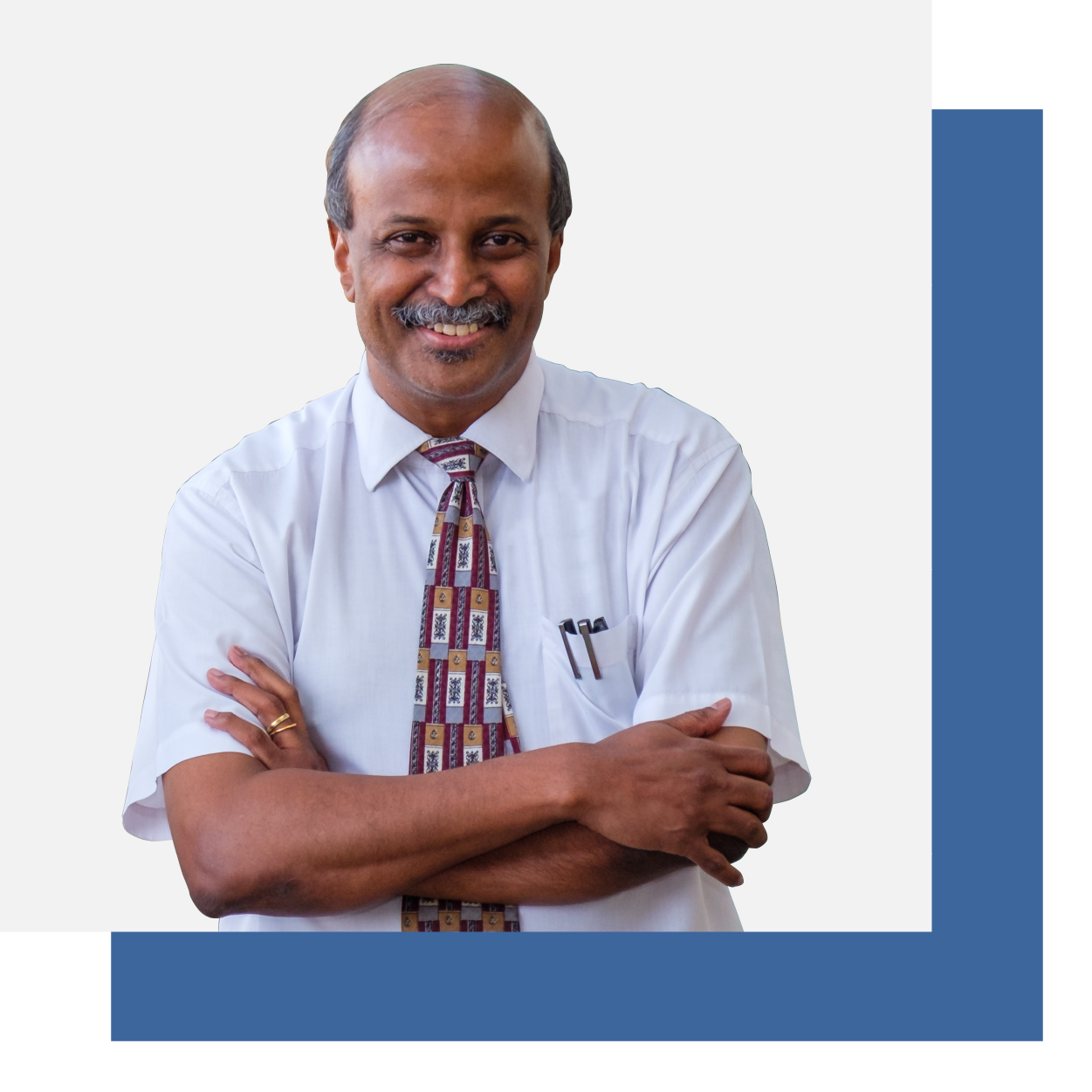
Professor, Department of Medicine, NUS
Senior Consultant, Division of Infectious Disease, University Medicine Cluster, National University Hospital
After completing medical school at the National University of Singapore and national service in the Singapore Armed Forces Medical Corps, Professor Paul Anantharajah Tambyah trained in Infectious Diseases at the University of Wisconsin under Dr Dennis Maki. His main research interests are in emerging infectious diseases and device associated infections especially catheter associated urinary tract infections. After returning to Singapore more than 20 years ago, he has been involved in a number of national and international committees and at the same time completed a MD by research in NUS. Unfortunately, that program is not offered any more but he is not completely responsible for that. He is currently Professor of Medicine at the National University of Singapore and Senior Consultant Infectious Diseases Physician at the National University Health System. He is also President of the Asia Pacific Society of Clinical Microbiology and Infection and President Elect of the International Society of Infectious Diseases.
Molecular Design as an Enabler of Technological Innovation
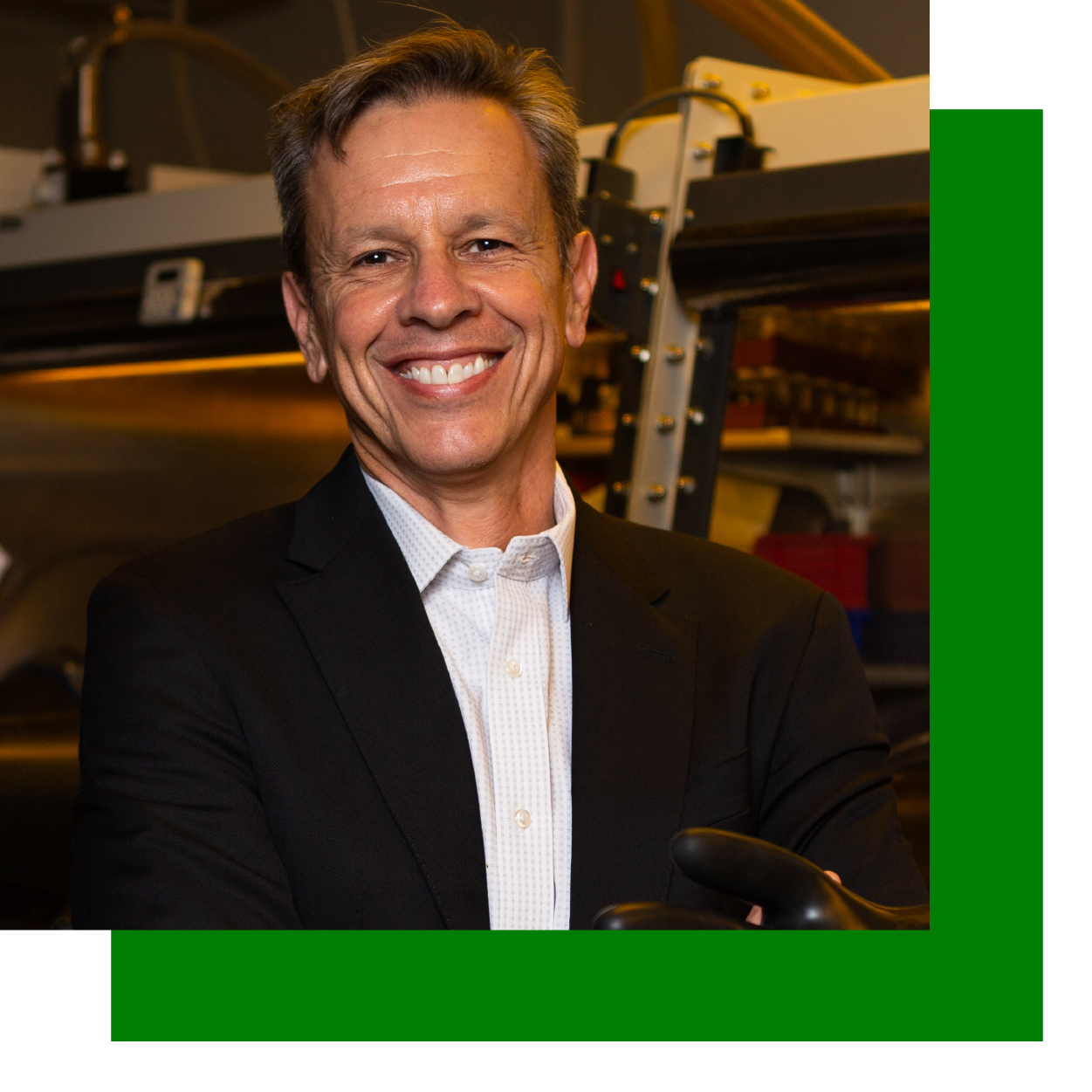
Professor, Department of Chemistry and Chemical Engineering, NUS
Professor Guillermo (Gui) Bazan received his B.Sc. (summa cum laude) from the University of Ottawa. His Ph.D. studies were carried out at the Massachusetts Institute of Technology under the guidance of Nobel Laurate Richard R. Schrock. He was a postdoctoral associate at the California Institute of Technology with Professor John E. Bercaw.
Professor Bazan began his independent academic career at the University of Rochester in 1992. He was recruited by the University of California, Santa Barbara in 1998, and currently holds appointments in the Departments of Materials and in Chemistry & Biochemistry. Relevant awards and recognitions include: Thomson Reuter “Most Influential Scientific Minds”, 2015; Fellow of the Royal Society of Chemistry, 2014; Top 50 Material Scientists by Citation and Impact, Thompson Reuters, 2011; Macromolecules Advisory Board, 2009; Professor of the Chang Jiang Scholars Professor, 2009; Advanced Materials Editorial Advisory Board, 2008; Fellow of the American Association for the Advancement of Science, 2007; American Chemical Society Cope Scholar Award, 2006; Bessel Award, Humboldt Foundation, 2005; NSF Special Creativity Award, 2003; Union Carbide Innovation Award, 1999; Union Carbide Innovation Award, 1998; Closs Lecturer, University of Chicago, 1997; Camille and Henry Dreyfus Teacher-Scholar Award, 1996-1998; Sloan Research Fellow Award, 1996-1998; NSF CAREER Award, 1995-1998; Dreyfus New Faculty Award, 1992-1993; NSERCC Postdoctoral Fellowship, November 1990-May 1992 and the NSERCC 1967 Science and Engineering Scholarship, September 1986-June 1990.
Four spin-off companies are associated with his laboratories and the sudents in his group. They include Sirigen (purchased by Becton Dickinson), NEXT Energy (winner of the Most Disruptive Technology by the Pacific Coast Business Times), Apeel Technologies (fastest growing company in the California Central Coast) and Xiretsa. Prof. Bazan holds approximately forty patents. Thirty-five of his previous students and postdoctoral associates now lead successful academic positions.
Quantum Disruption
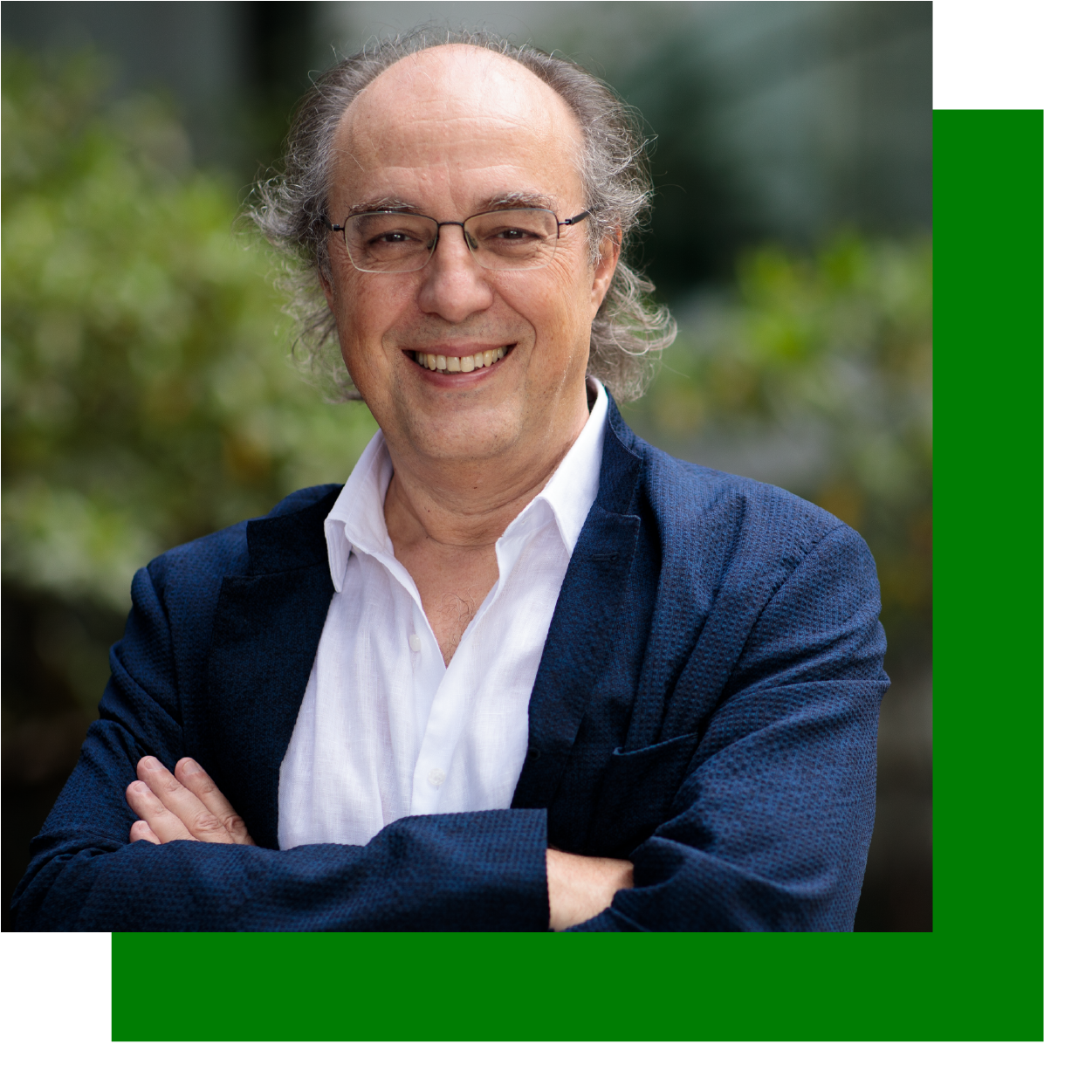
Professor José Ignacio Latorre
Director, Centre for Quantum Technologies (CQT)
Professor José Ignacio Latorre was appointed Director of the Centre for Quantum Technologies (CQT) in July 2020. He is also Professor and Provost’s Chair in the National University of Singapore’s Department of Physics.
A leading figure in particle physics and quantum information, José Ignacio joined CQT, NUS from the University of Barcelona. He has been heading a research group at the Barcelona Supercomputing Center to build the first quantum processor in Spain. He is one of the founders of the NNPDF collaboration for research on high-energy physics. José Ignacio is also the founder and director coordinator of the Centro de Ciencias de Benasque Pedro Pascual, a Spanish scientific facility that is well known in the quantum information community for hosting workshops and conferences.
Data and analytics capabilities, sophisticated algorithms, and powerful computational systems have steadily developed in the recent years, to bring about rapid technology advances and business disruptions in modern society. This is an exciting time to enter research, especially in the field of analytics. In this talk, Professor Teo will share his perspective on the challenges and exciting moments in the field, especially in the area of operations research and analytics.
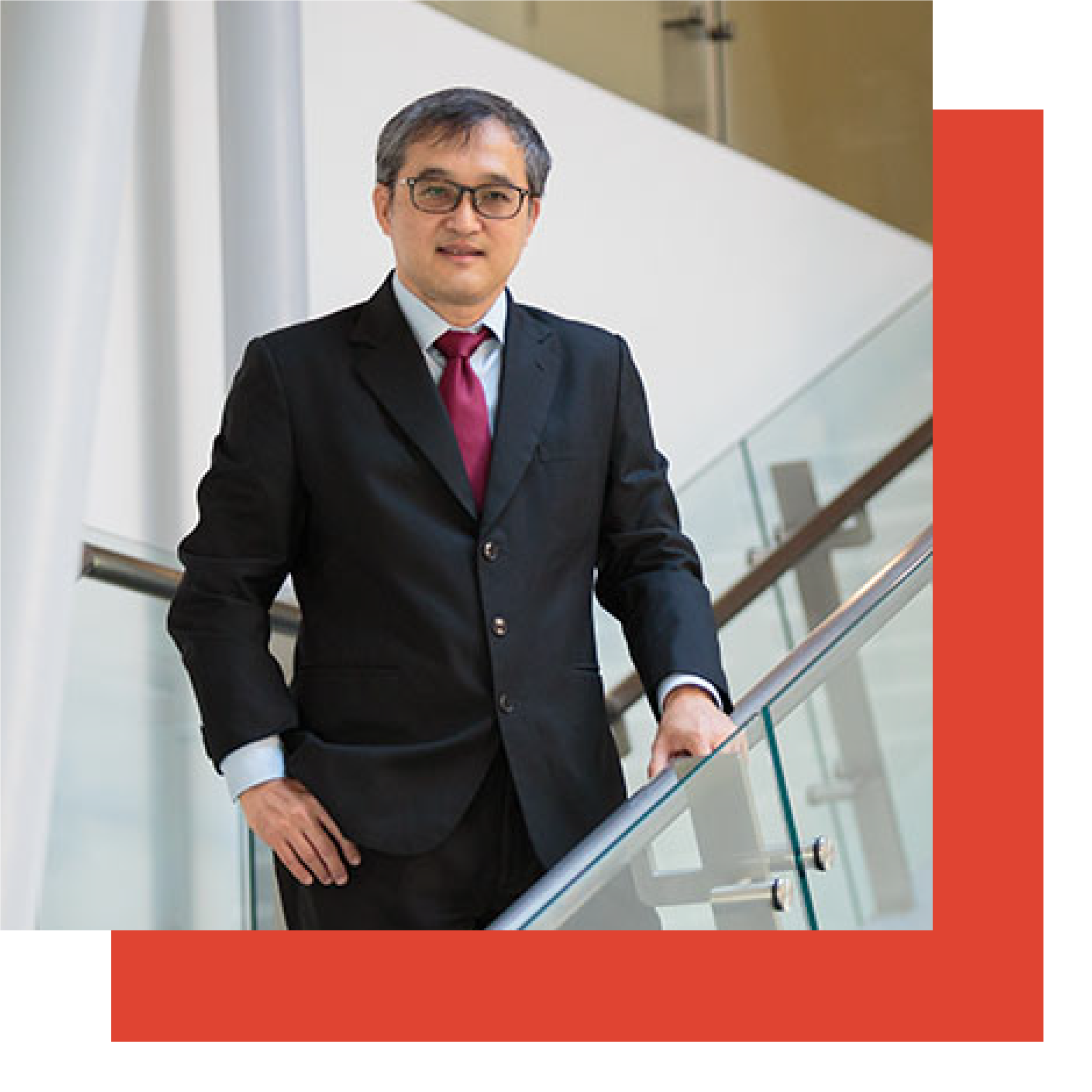
Professor Teo Chung Piaw
Professor and Provost’s Chair Director, Institute of Operations Research and Analytics (IORA)
Professor Chung Piaw TEO is Provost’s Chair Professor in NUS Business School, and Executive Director of the Institute of OR and Analytics in the National University of Singapore. He was a fellow in the Singapore-MIT Alliance Program, an Eschbach Scholar in Northwestern University (US), Professor in Sungkyunkwan Graduate School of Business (Korea), and a Distinguished Visiting Professor in YuanZe University (Taiwan). He studies issues in service and manufacturing operations, supply chain management, discrete optimization, and machine learning. He is currently a Department Editor for Management Science (Optimization), and a former Area Editor for Operations Research (Operations and Supply Chains). He has also served on several international committees such as the Chair of the Nicholson Paper Competition (INFORMS, US), member of the LANCHESTER and IMPACT Prize Committee (INFORMS, US), Fudan Prize Committee on Outstanding Contribution to Management (China). He serves on the advisory board/management committee of Singapore University of Technology and Design (ESD Pillar), School of Management in the University of Science and Technology China (USTC), the Global Asia Institute and the Risk Management Institute in NUS (Singapore). He is an INFORMS Fellow and also a “Chang Jiang Scholar” (“长江学者”) awarded by China’s Ministry of Education.
The Mathematics of Machine Learning
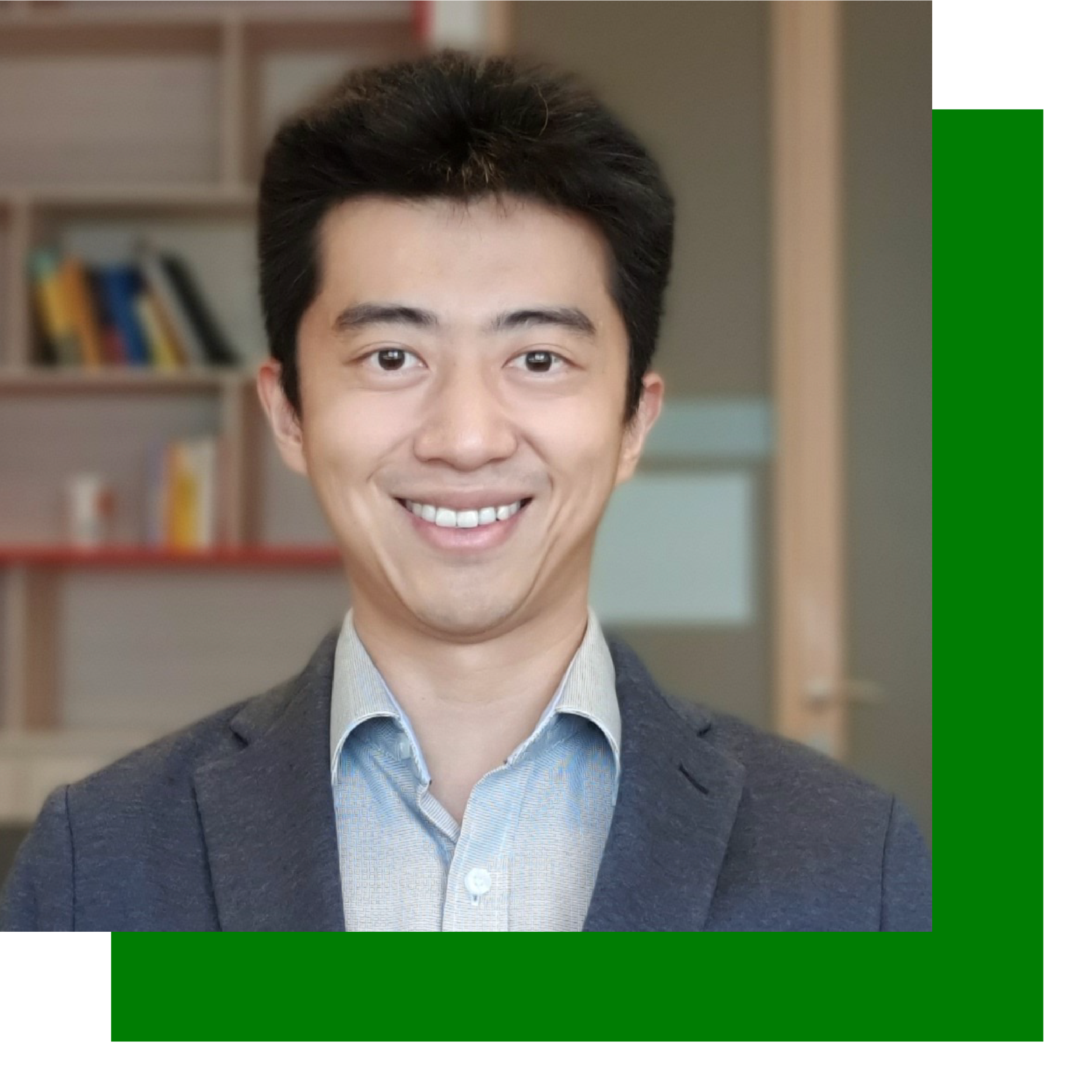
Assistant Professor, Department of Mathematics, NUS
Assistant Professor Qianxiao Li is an assistant professor in the Department of Mathematics, National University of Singapore and a research scientist in the Institute of High Performance Computing, A*STAR. He graduated with a BA in mathematics from University of Cambridge in 2010, and a PhD in applied mathematics from Princeton University in 2016, afterwhich he joined the institute of high performance computing as a research scientist. In 2019, he joined the department of mathematics at NUS as an assistant professor, while holding a joint appointment with A*STAR. His research interests include theoretical machine learning, numerical analysis, optimization and optimal control, as well as the application of data-driven methods to problems in the natural sciences.
Cancer: What’s in Our Genes, and What Isn’t?
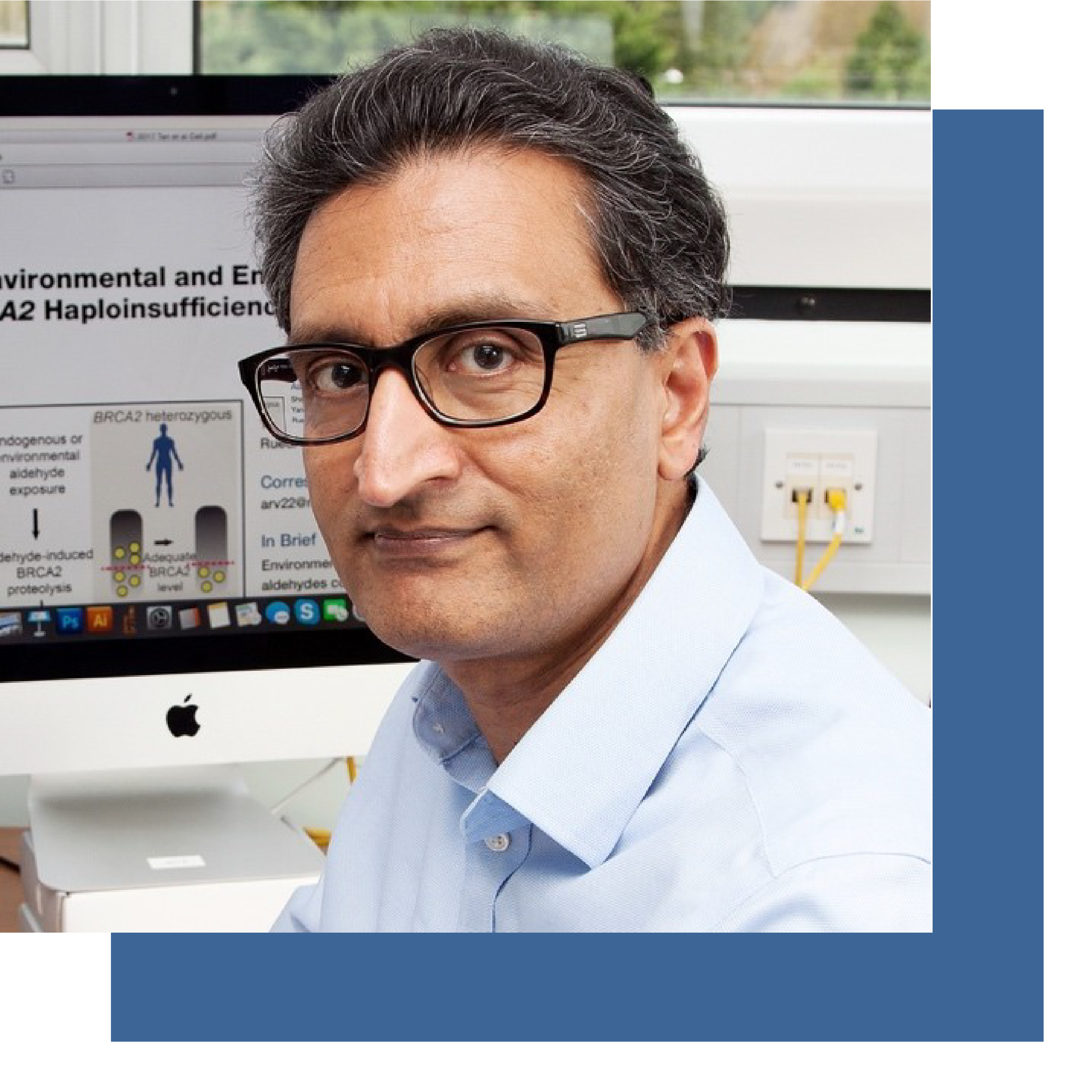
Director, Cancer Science Institute of Singapore (CSI)
Professor Ashok Venkitaraman will soon relocate to the National University of Singapore from his current position at the University of Cambridge. Ashok is the inaugural holder of the Ursula Zoellner Professorship of Cancer Research in Cambridge, and was from 2006-19 the Director of the Medical Research Council (MRC) Cancer Unit there.
At the National University of Singapore, Ashok will become the new Director of the Cancer Science Institute of Singapore, the largest of five core-funded Research Centers of Excellence established by the Govt of Singapore, and take up a Distinguished Professorship of Medicine.
Ashok’s research has contributed fundamentally to our understanding of how human cancer is suppressed by genes that maintain the integrity of the information encoded in our genomes. He is recognized for discovering how inherited mutations affecting the ‘breast cancer gene’ BRCA2 cause genomic instability to provoke carcinogenesis, providing the scientific foundations for new approaches to treatment. His laboratory has developed technology platforms to accelerate the creation of new drugs for cancer and other diseases, which have been adopted by industry.
The continuing focus of Ashok’s work is to understand what makes us susceptible to cancer, and how to delay or prevent the onset of the disease. In his talk, he will share insights from his career journey and work.
Inequality and the Politics of Envy

Professor Danny Quah
Dean and Li Ka Shing Professor in Economics, NUS
Professor Danny Quah is Li Ka Shing Professor in Economics and Dean at the Lee Kuan Yew School of Public Policy, NUS. He works on income inequality and on world order.
In his research, he documents the variety of inequality experiences across economies to suggest that a single narrative on inequality is unlikely to be correct or helpful. On world order, he takes an economic approach to international systems, studying the supply and demand of world order: on the one hand, what international system the world’s superpowers provide, and on the other, what world order the global community needs. Quah uses this to recast analysis of global power shifts, the rise of the east, regional order, and models of global power relations.
Quah is a member of the Spence-Stiglitz Commission on Global Economic Transformation. He is the author of “The Global Economy’s Shifting Centre of Gravity”. Quah gave the third LSE-NUS lecture in 2013, and TEDx talks in 2016, 2014, and 2012. Quah was previously Assistant Professor of Economics at MIT, and then Professor of Economics and International Development, and Director of the Saw Swee Hock Southeast Asia Centre at LSE. He had also served as LSE’s Head of Department for Economics, and Council Member on Malaysia’s National Economic Advisory Council.
Quah studied at Princeton, Minnesota, and Harvard.
Graduate Student Sharing: Is A PhD Right for Me? A Quick Guide for the Perplexed

Nationality: Israel
Faculty & Year of Study: Business School, Year 5
Ofir is a Israeli citizen and a father of three. He is a Finance PhD candidate in NUS’s business school. Prior to that he worked at HFN Law firm in the High Tech department, after completing his LL.M masters of law and LL.B undergraduate of law studies with distinction. His research interests lies in entrepreneurial finance, financial accounting and law and economics.
Alumni Sharing: The Accidental Entrepreneur

Nationality: China
Current Job: CEO, MiRXES Pte Ltd, Singapore
Graduation: School of Medicine, Year 2012
Lihan co-founded and serves as CEO of MiRXES, a Singapore headquartered biotechnology company with the mission to develop accurate, affordable and actionable early cancer detection solutions. In a short six-year period, MiRXES has grown from a 3-man team to a global operation with R&D, manufacturing and clinical diagnostics in Singapore, US, Japan and China. In Feb 2020, MiRXES was engaged by the Singapore government agencies to manufacture and supply the FortitudeTM COVID-19 test kits in response to the escalating global pandemic. As the first approved COVID-19 test in Singapore, FortitudeTM is now one of the most widely used tests globally, deployed in more than 45 countries. In 2015, Lihan was recognized by the MIT Technology Review as a member of the Innovators Under 35. MIRXES was named Singapore’s Most Promising Start-up in 2016 and Singapore’s Fastest Growing Companies in 2020. MiRXES has raised USD $43 million venture funding since 2016, among the highest raised by an Asia based diagnostic start-up.
The Graduate Student as Apprentice
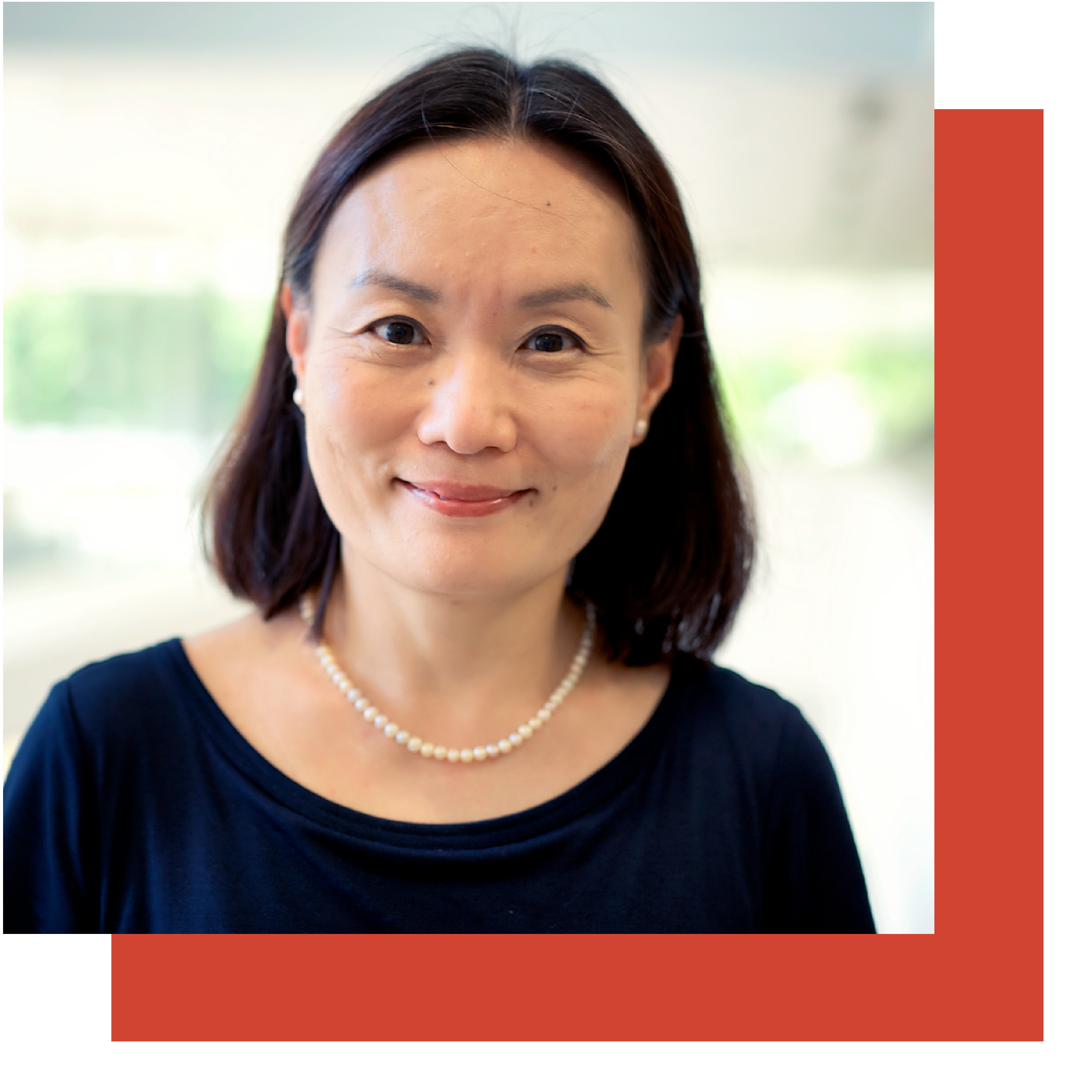
Associate Professor Kim Soo Yeon
Head and Associate Professor, Department of Political Science, NUS
Professor Kim Soo Yeon is Associate Professor and Head of Department of Political Science at the National University of Singapore. She holds a PhD in Political Science from Yale University and BA in Political Science and International Relations from Yonsei University. Her current research focuses on production networks, multinational firms, and the politics of free trade agreements in Asia; the politics of compliance in WTO disputes; and rising powers in the global economy. Soo Yeon Kim’s recent publications include “Global Value Chains and the Political Economy of WTO Disputes,” (2019, with Gabriele Spilker), Review of International Organizations; “The Regime Complex for Investment Governance: Overlapping Provisions in PTAs and BITs” (with Clara Lee), in Manfred Elsig, Michael Hahn, and Gabriele Spilker, Eds., The Shifting Landscape of Global Trade Governance (2020, Cambridge University Press); and BRICS and the Global Economy (2020, Editor, World Scientific Publishing).
Can You Make A Difference As A Health Researcher?
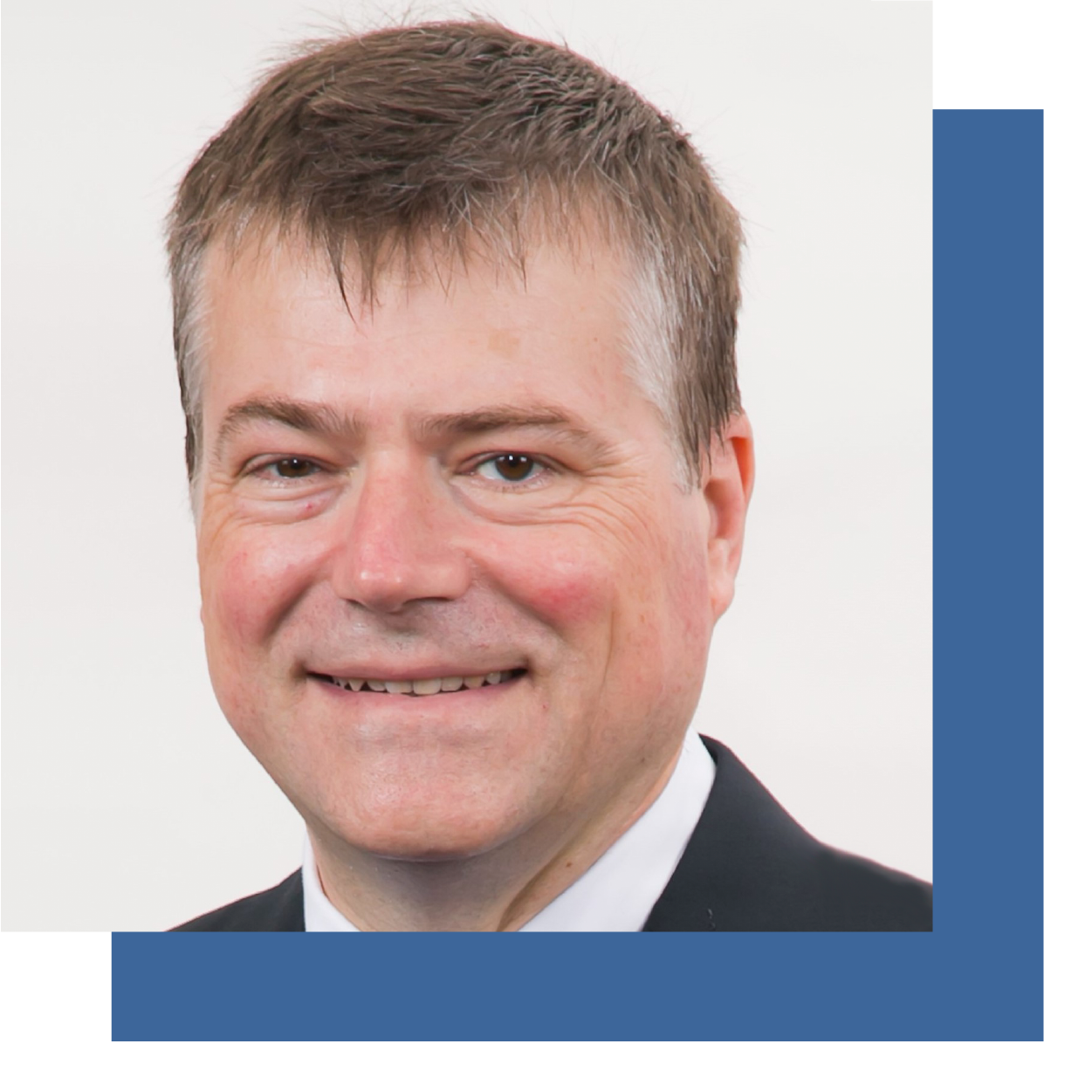
Professor Patrick Finbarr Allen
Dean, Faculty of Dentistry, NUS
Senior Consultant, Discipline of Prosthodontics, Operative Dentistry & Endodontics, National University Centre for Oral Health, Singapore
Chair, National University Centre for Oral Health, Singapore
Professor Patrick Finbarr Allen is currently Dean, NUS Faculty of Dentistry and Director of the National University Centre for Oral Health, Singapore. He is a Professor in the discipline of Operative Dentistry, Endodontics and Prosthodontics, and a Senior Consultant at the National University Hospital, Singapore. The focus of his research is geriatric oral health and the impact of oral disease on quality of life and function. He has been involved in research projects for the past 25 years, including a number of international collaborations. He has mentored graduate students [both Masters and PhD] from many different countries, and has published nearly 140 peer reviewed papers. His research interest is allied to his work as a healthcare clinician, and he encourages translation of research into clinical practice.
Public Prosecution and Criminal Justice
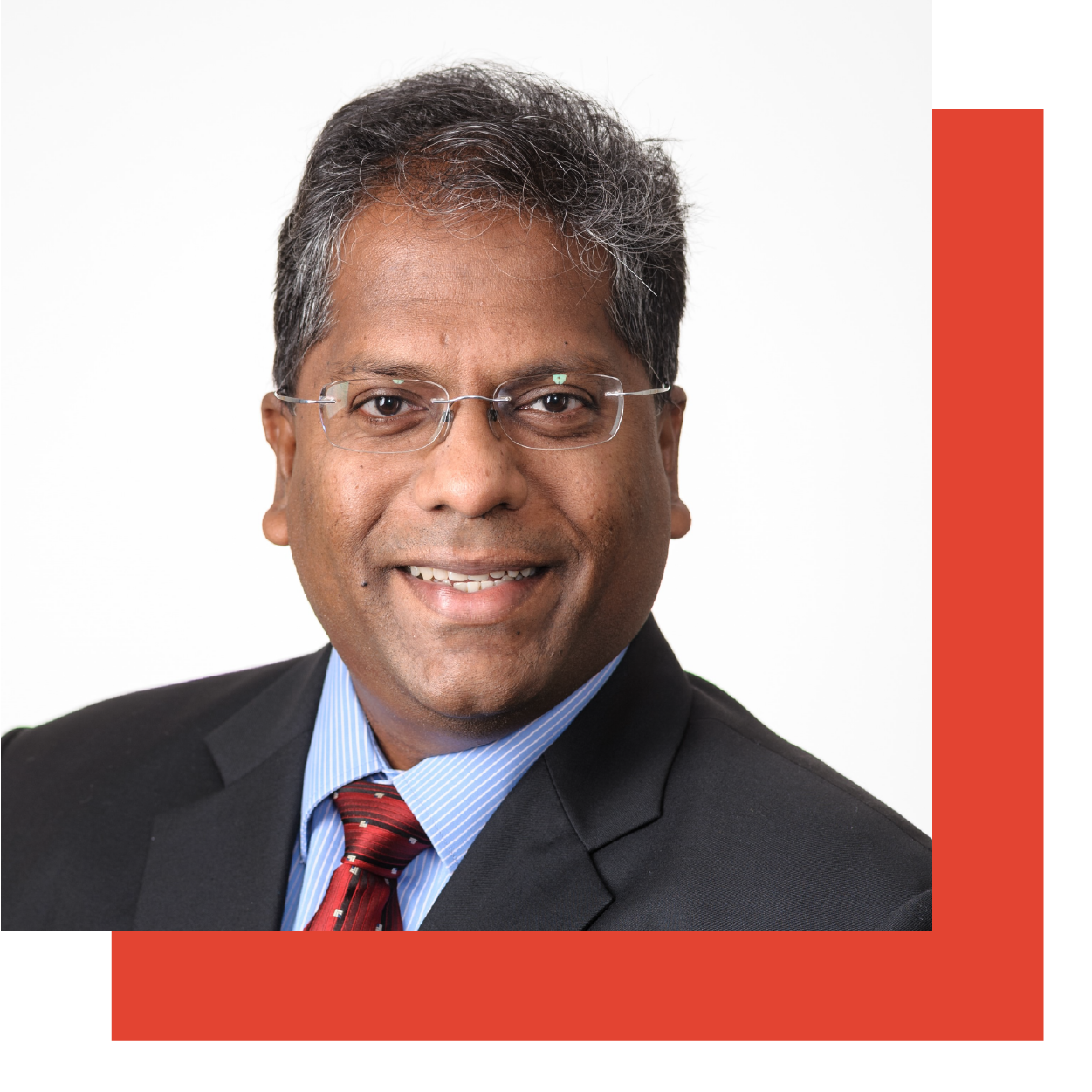
Professor Kumaralingam Amirthalingam
Professor, Faculty of Law, NUS
Professor Kumaralingam Amirthalingam is a Professor at the Faculty of Law where he teaches Criminal Law, Law of Torts and Business Torts. His research is in the areas of criminal law and justice (focusing on the role of the Public Prosecutor) and tort law (focusing on medical negligence). He spent two years with the Attorney-General’s Chambers, Singapore as a Deputy Public Prosecutor and Senior Director (Research & Policy), and recently he appeared before the Singapore Court of Appeal as amicus curiae in a criminal sentencing matter. He served as a member of the Penal Code Review Committee that recommended major reforms to the Penal Code in 2018.
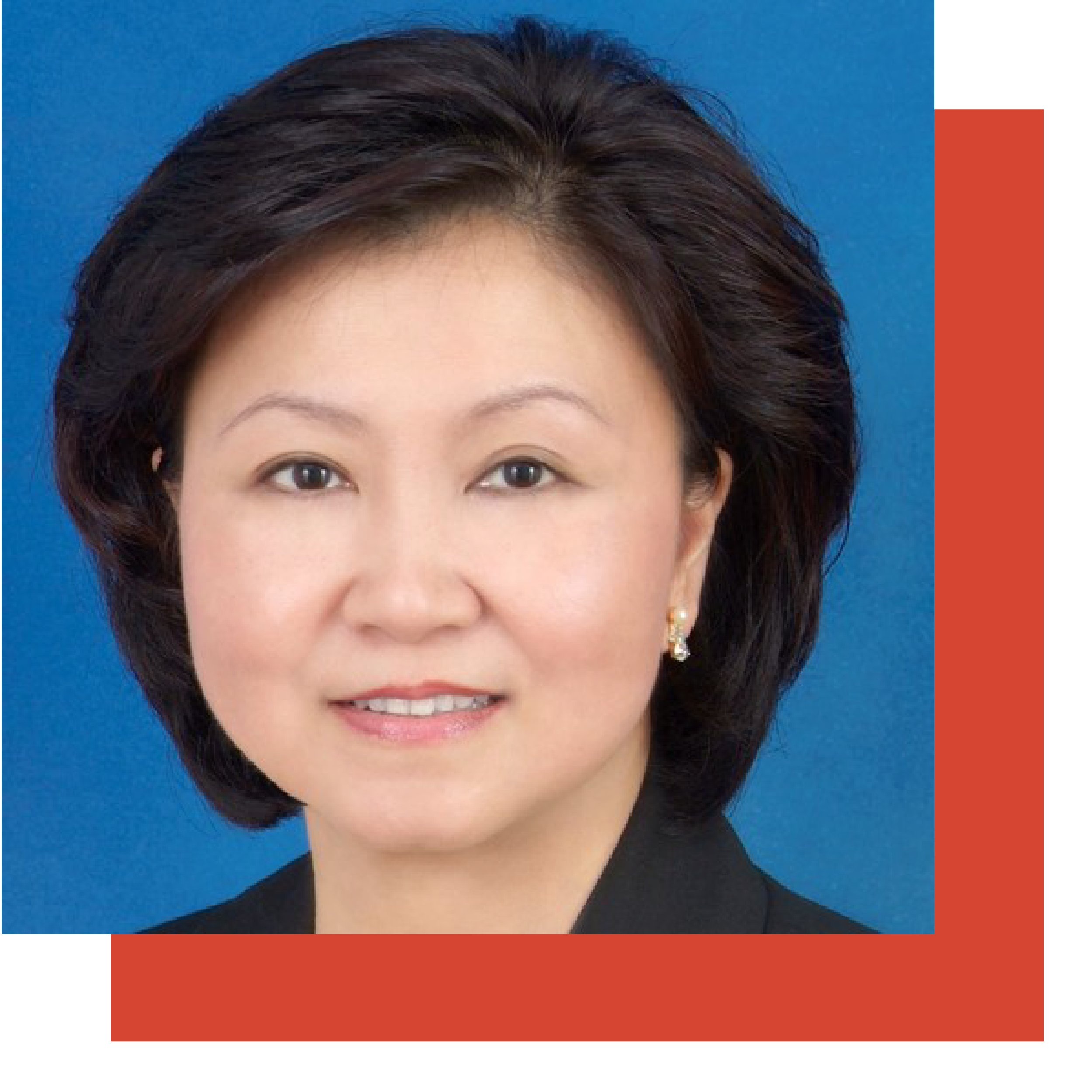
Professor Jean Yeung Wei-Jun is Provost’s Chair Professor of Sociology, Founding Director of the Centre for Family and Population Research, and Research Leader of the Changing Family in Asia cluster in the Asia Research Institute at the National University of Singapore. She is a council member of the Asian Population Association and of the International Sociological Association’s Research Committee on Family. She has published extensively in leading journals on family, population, and social inequality, served on many scientific committees, and received many prestigious awards. Her recent publications include those that examine the global family changes, productive aging, youth labor markets, migration, marriage, and children’s well-being.
Graduate Student Sharing: The Making of An Engaged Intellectual

Nationality: Indonesia
Faculty & Year of Study: Faculty of Arts and Social Sciences, Year 2
Okky Madasari is an Indonesian novelist and essayist, and currently PhD candidate with National University of Singapore’s Malay Studies Department. Okky is well-known for her social criticism with her fiction highlighting social issues, such as injustice and discrimination, and above all, about humanity. In academic field, her main interest is on literature, censorship and freedom of expression, and sociology of knowledge. Since 2010 Okky has published 10 books, comprising of five novels, one short-story collection, three children’s novels and one non-fiction book. Her newest book (2019) is “Genealogy of Indonesian Literature: Capitalism, Islam and Critical Literature”, which is published online and can be freely downloaded from her website. Okky’s novels have been translated into English, Germany and Arabic. She also regularly writes for Indonesian and international media on issues in line with her interests reflected in her fiction and her academic works.
Sarah will be sharing about her decision to do a PhD at NUS, her 4-year PhD experience, and how she navigated her way to an academic position at McGill University in Montreal, Canada.
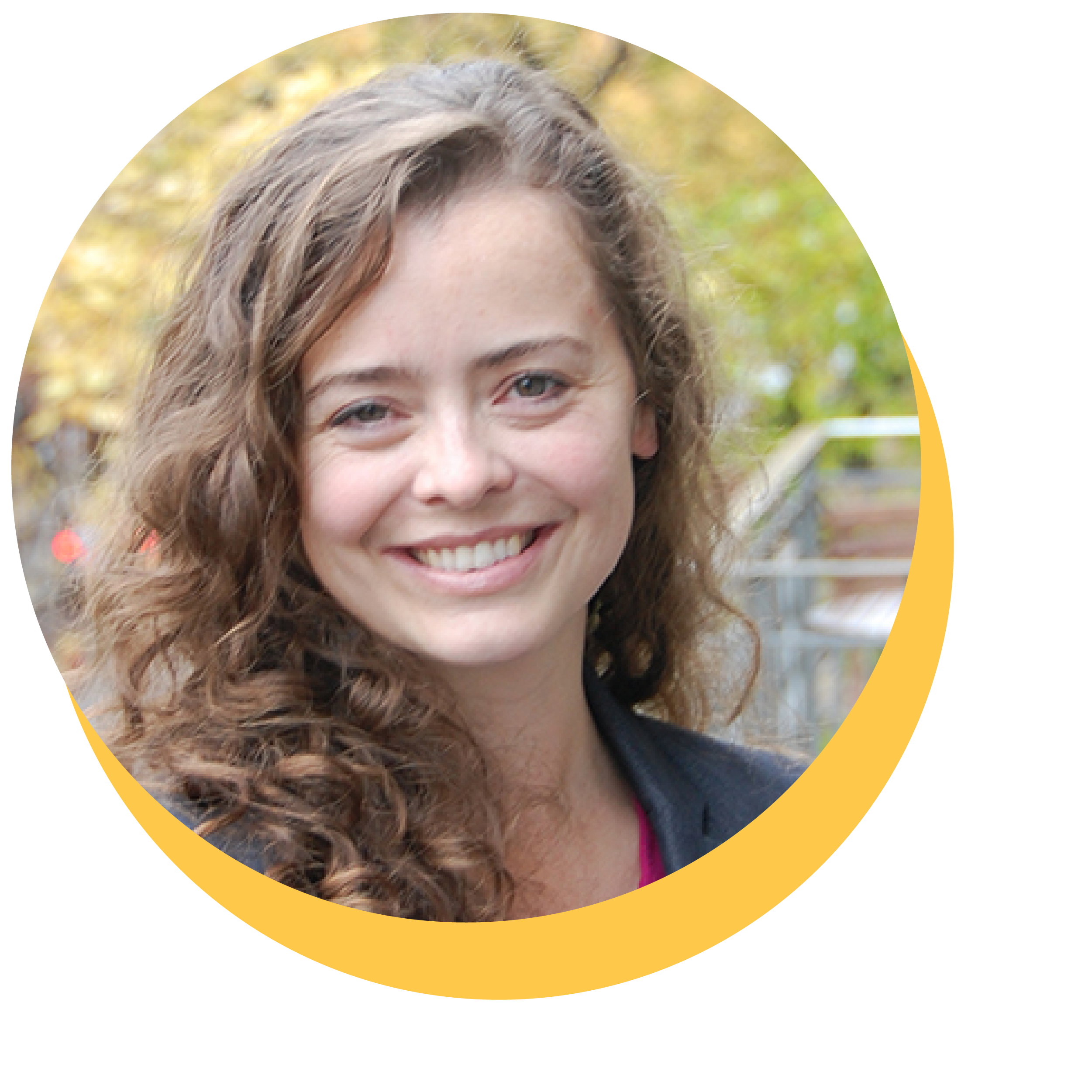
Nationality: Canada
Current Job: Associate Professor, McGill University, Canada
Graduation: Faculty of Arts and Social Sciences, Year 2008
Sarah Moser holds a PhD from the National University of Singapore (Geography, 2008). She held postdoctoral positions at the Massachusetts Institute of Technology and Trinity College and taught at several universities in Boston before starting a position in the Department of Geography at McGill University in Montreal, Canada in 2013. Sarah is a cultural and urban geographer whose current work examines new cities being built from scratch in Southeast Asia (Indonesia and Malaysia), the Middle East (Saudi Arabia, Qatar, Kuwait), and Africa. Her work has been referenced in The New York Times, The Guardian, Forbes, National Geographic, CBC, Le Monde, Bloomberg, Wall Street Journal, and more. (www.newcitieslab.org)

